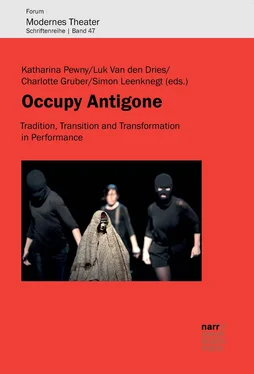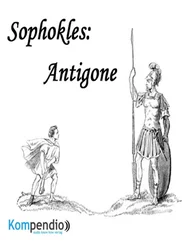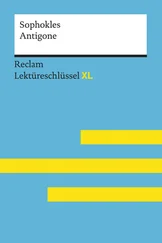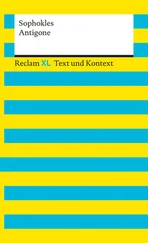Man is the violent one, not aside from and along with other attributes but solely in the sense that in his fundamental violence [ Gewalt-tätigkeit] he uses power [ Gewalt] against the overpowering [ Überwältinge]. Because he is twice deinonin a sense that is originally one, he is to deinotaton, the most powerful; violent in the midst of overpowering.1 Even if it sounds like Heidegger talks about the two sides of deinon, he actually disambiguates the term to mean nothing but violence. However in his seminar on the Hölderlin-hymn The Ister, which Heidegger also conducted at the University of Freiburg, now in the summer of 1942, he also included a more detailed reading of the “Ode to Man” more directly valorising state power/violence, while at the same time reintroducing an expression of radical ambiguity with regard to which forms of violence are an essential aspect of what it means to be human. In 1942 Heidegger also more openly exposed his hermeneutic strategy, rejecting the rendering of deinonas ungeheuer, which Hölderlin had used in his translation of the play. Instead of ungeheuer, Heidegger insists on understanding deinonas unheimlich– “uncanny” – which at this time had already been used by Freud, an author Heidegger probably never read. Heidegger’s interpretation or ’adaptation’ of Hölderlin’s translation of deinonas " unheimlich" (uncanny) is based on an intentional, even somewhat paradoxical resistance towards the complex double nature of being human expressed in the “Ode to Man”. Or as Heidegger himself explains, he chose this translation because it "is initially alien to us, violent, or in ’philological’ terms ’wrong’".2 And immediately following this gesture of resistance, Heidegger asks how it is possible to decide about the correctness of a translation, beyond the mere dictionary meaning of a word. Or according to Heidegger’s own explanation: In most cases a dictionary provides the correct information about the meaning of a word, yet the correctness does not yet guarantee us any insight into the truth of what the word means and can mean, given that we are asking about the essential realm named in the word.3 In what follows, Heidegger argues that central texts by Kant and Hegel are actually "in need of translation" because It pertains to the essence of a historical people to extend like a mountain range into the lowlands and the flatlands and at the same time to have its occasional peaks towering above into an otherwise inaccessible altitude. […] Translation must set us upon the path of ascent towards the peak.4 According to Heidegger, translation can be seen as a legal process, making something understandable, which "means awakening our understanding to the fact that the blind obstinacy of habitual opinion must be shattered and abandoned if the truth of a work is to unveil itself".5 But Heidegger takes an additional step beyond this arbitrary relation to translation by phonologically, but without any solid etymological basis, reading unheimlichas unheimich(‘unhomely’), explaining that [b]eing unhomely is no mere deviance from the homely, but rather the converse: a seeking and searching out the homely, a seeking that at times does not know itself. This seeking shies at no danger and no risk. Everywhere it ventures and is underway in all directions.6 Heidegger’s reading, appropriating or seeking for the “homely” – actually the Heimat– regardless of the dangers involved, no doubt reflects the situation of Germany as Heidegger understood it during the summer of 1942, at a moment in history situated ’between’ the Wannsee conference and the battle of Stalingrad. 3. Brecht’s deinon Brecht’s method of adapting Sophocles/Hölderlin for the stage, in what he officially called The Antigone of Sophocles; A version for the stage after Hölderlin’s translation, is based on diametrically opposite premises, recognizing the hermeneutical heritage of the text instead of Heidegger’s open and even violent resistance to this humanistic heritage. Thus, instead of violating the translation of deinonas ungeheuer, Brecht accepts this option. In the English translation of Brecht’s adaptation of the Hölderlin version of the “Ode to Man”, translated by David Constantine, who has also translated Hölderlin’s German translations of Antigoneas well as of Oedipus the Kinginto English, ungeheueris “monstrous”. Monstrous [ ungeheuer], a lot. But nothing More Monstrous than man. For he across the night Of the sea, when into the winter the Southerlies blow, he puts out In winged and whirring houses.1 Brecht follows Hölderlin’s translation of the “Ode to Man” until the end of the second strophe, where the chorus says that even if man’s resources are seemingly infinite, there is one thing he cannot escape, and that is death. Hölderlin’s German translation, again with a strong negative, is "Allbewandert. / Unbewandert. Zu nichts kommt er", which Constantine translates as "All-travelled / Untravelled. He comes to nothing".2 And to give a brief impression of how condensed Hölderlin’s translation is, the Penguin Classics translation by Robert Fagles of this crucial passage in Antigonehas thirty instead of the six words. The "Allbewandert. / Unbewandert. Zu nichts kommt er" of Hölderlin in this English translation is: Never without resources never an impasse as he marches on the future – only Death, from Death alone he will find no rescue but from desperate plagues he has plotted his escapes.3 But at this point, where the second antistrophe begins, Brecht (as his own name indicates) literally breaks away from his Vorlage(source or prototype). The first sentence of Hölderlin’s version of the second antistrophe (in English) is more like an adaptation of Sophocles’ text than the other sections of his translation of the “Ode to Man”: [Only the future place of the dead He does not know how to flee Nor to think of a way Of flight from clumsy plagues.] Possessing something More than he hopes of wisdom and the skills of art He comes to grief one time and to good another.4 And here is Brecht’s version of the second antistrophe, where the chorus points at itself and at man (and here the male gender is appropriate) as his own enemy: Always he knows what to do Nothing nonplusses him. In all this he is boundless but A measure is set. For when he wants for an enemy He rises up as his own. […] By himself alone His belly will never be filled but he builds a wall Around what he owns and the wall Must be torn down. The roof Opened to the rain. Humanity Weighs with him not a jot. Monstrous thereby He becomes to himself. 5 Brecht is gradually working towards the paradoxical definition of man as he who becomes monstrous to himself, or in the German – "So, ungeheur / Wird er sich selbst" – which with its compressed reflexivity, projects a mirror of monstrosity where man can view how he becomes his own enemy and destroyer. This detailed textual analysis is crucial in order to understand how the logical arguments are constructed, and these logical arguments are in turn necessary in order to grasp which principles a certain translation, adaptation, staging or interpretation has applied, how it is constituted and how a specific reading, in spite of its potential contradictions progresses towards some form of poetic or aesthetic consistency. But this is not sufficient. With regard to Heidegger’s ’reading’, we still need to learn more about how deinonappropriates and disposes that which is not violent and expresses itself through what he terms “a seeking and searching out the homely, a seeking that at times does not know itself”, totally annihilating Antigone’s subject position. His approach is based on an unrestrained use of force and violence which, using Heidegger’s own metaphor, he believes can actually "set us upon the path of ascent towards the peak". And with regard to Brecht it is important to note that even before his production of Antigone, already in his Lehrstücke( The Learning Plays), which were composed prior to his exile after Hitler’s takeover of political power in 1933, Brecht had already explored the notion that tragedy shows how man becomes his own enemy.
Читать дальше










